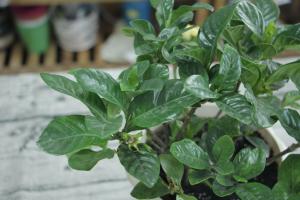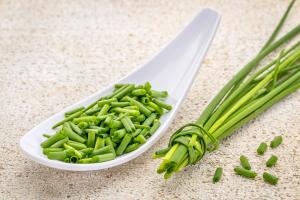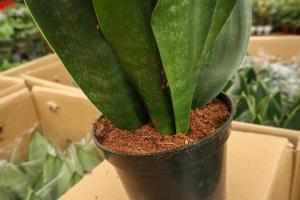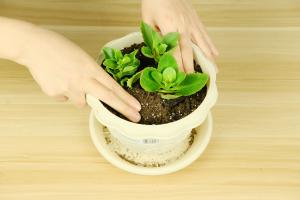How Often Should You Fertilize Potted Plants?
Fertilizing potted plants is an essential part of keeping them healthy and vibrant. However, determining how often you should fertilize your potted plants can be a bit tricky, as the frequency will depend on several factors. In this article, we will help you understand the key considerations for fertilizing potted plants and provide some helpful tips for keeping your plants thriving.
Factors to Consider When Fertilizing Potted Plants
There are several factors that will influence how often you should fertilize your potted plants. These include:
Plant type: Different plants have different nutritional needs, so you will need to research the specific requirements for your plant.
Growth stage: Plants have different requirements during different stages of growth. For example, a newly planted seedling will require less fertilizer than a mature plant that is producing flowers or fruit.
Pot size and soil quality: Larger pots and nutrient-rich soils will typically require less fertilizer than smaller pots with less nutritious soil.
Exposure to sunlight: Plants that receive more sunlight will typically require more fertilizer than those that receive less sunlight.
Watering frequency: Over-watering or under-watering can impact a plant’s ability to absorb nutrients from the soil. Ensure you are watering your plants correctly before fertilizing.
How Often Should You Fertilize Potted Plants?
Based on the factors listed above, there is no one-size-fits-all rule for determining how often to fertilize potted plants. However, there are some general guidelines that can help you determine the best schedule for your plants:
Slow-release fertilizer: If you use a slow-release fertilizer, you will only need to apply it two to three times per growing season. This type of fertilizer feeds the plant throughout the growing season, slowly releasing nutrients over time.
Water-soluble fertilizer: If you use a water-soluble fertilizer, you will need to apply it more frequently, usually every two weeks during the growing season. This type of fertilizer quickly dissolves in water and provides an immediate nutrient boost to the plant.
Organic fertilizer: If you are using an organic fertilizer, you may need to apply it more frequently than synthetic fertilizers. Organic fertilizers typically release nutrients more slowly, so you may need to fertilize every 4-6 weeks.
It is important to note that over-fertilizing can be harmful to your plants. Too much fertilizer can burn the plant’s roots and cause damage, and excess nutrients can leach into the soil and cause pollution. Always follow the directions on the fertilizer package carefully to avoid over-fertilizing your potted plants.
Signs Your Potted Plants Need Fertilizer
Despite your best efforts, it can sometimes be difficult to determine whether your potted plants need fertilizer. Here are some signs that your plants may be lacking nutrients:
Yellowing leaves: If your plant’s leaves are turning yellow, it may be a sign that the plant is not getting enough nitrogen.
Poor growth: If your plant is not growing as well as expected, it may need a boost of nutrients.
Reduced flowering or fruiting: If your plant is not producing as much fruit or flowers as it should, it may need more phosphorus.
Stunted growth: If your plant is not growing at all or is growing very slowly, it may need more potassium.
If you notice any of these signs, it may be time to fertilize your potted plants. However, always ensure that you have ruled out other potential issues such as pest infestations or disease before applying fertilizer.
Conclusion
Determining how often to fertilize potted plants can be a bit of trial and error, as it will depend on several factors such as plant type, growth stage, pot size, soil quality, sunlight exposure, and watering frequency. However, by following some basic guidelines, you can ensure that your plants receive the right nutrients to stay healthy and vibrant. Remember to always follow the fertilizer package directions carefully and watch for any signs that your plants may need an additional nutrient boost.

 how many times do yo...
how many times do yo... how many planted tre...
how many planted tre... how many pine trees ...
how many pine trees ... how many pecan trees...
how many pecan trees... how many plants comp...
how many plants comp... how many plants can ...
how many plants can ... how many plants and ...
how many plants and ... how many pepper plan...
how many pepper plan...
































